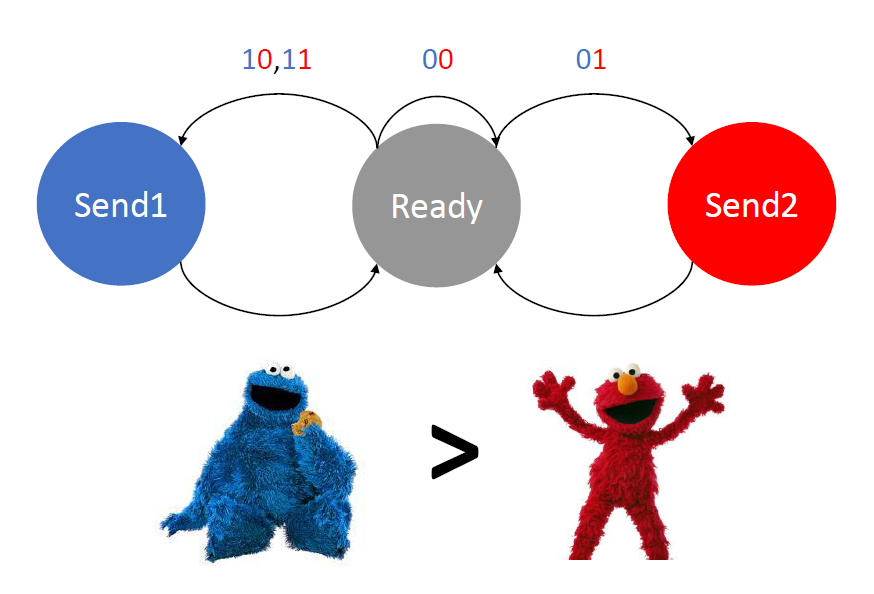Concurrent Games with Multiple Topologies

In my master’s thesis, we studied Nash Equilibria in concurrent games with multiple topologies. A game is a mathematical model that represents interactions among self-interested agents. In computer science, games are used to model systems that are composed of different components, each component free to choose its actions and aims to optimize its objective.
Nash Equilibrium is a stable state of a game where no player can change their behavior to improve their outcome. Different algorithms exist for finding Nash Equilibria in various types of games. However, the problem of finding Nash Equilibria in games with incomplete information is undecidable, meaning that there is no algorithm for finding them in general.
In our work, we examined a limited type of partial information, called multi-topology games, where players can play one of several different games (topologies), but they don’t know at the start of the game exactly which one they are in. We showed that this problem is decidable and presented an algorithm for solving it.
Our work was presented at The 33rd International Conference on Concurrency Theory (CONCUR 2022). You can read the full paper on arxiv and check out the slides.